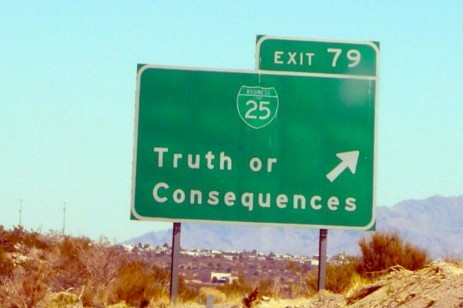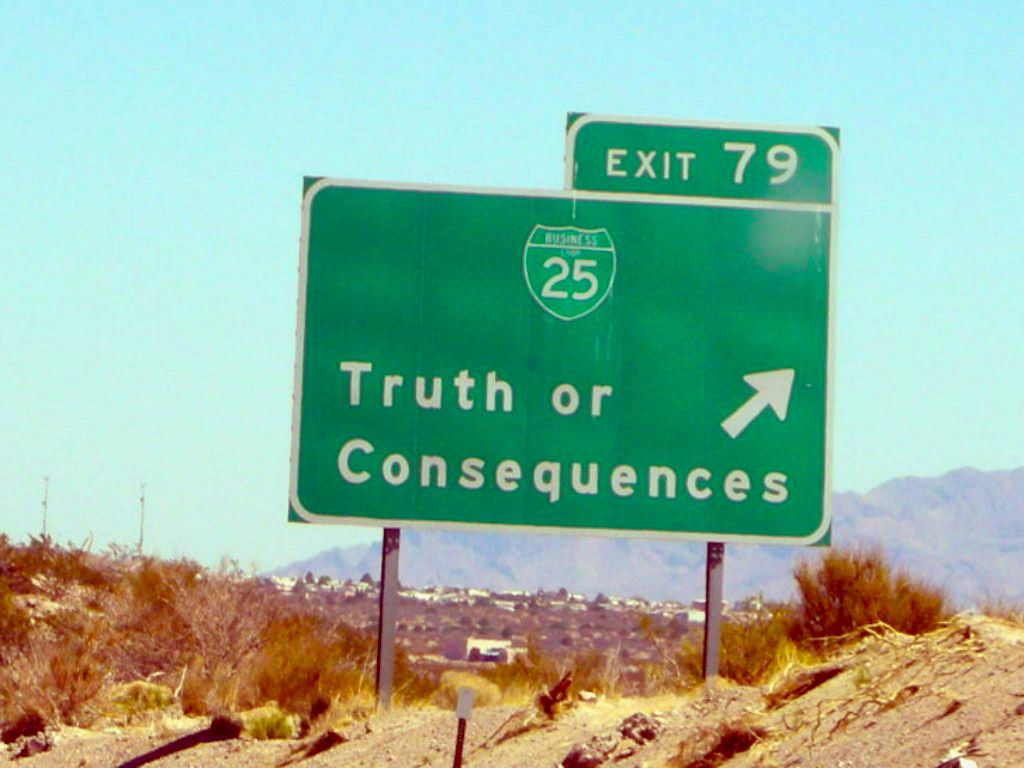 It’s time for Democrats to choose — which will it be?Photo: einalemRonald Brownstein has a great column in National Journal today pointing out a rather glaring fact that goes curiously unremarked in American political journalism: The GOP’s near-unanimous climate denialism has no analogue in the democratic world. There are scattered cranks everywhere, of course, but there’s no other developed democracy in which a major political party is dominated by people who explicitly reject mainstream science.
It’s time for Democrats to choose — which will it be?Photo: einalemRonald Brownstein has a great column in National Journal today pointing out a rather glaring fact that goes curiously unremarked in American political journalism: The GOP’s near-unanimous climate denialism has no analogue in the democratic world. There are scattered cranks everywhere, of course, but there’s no other developed democracy in which a major political party is dominated by people who explicitly reject mainstream science.
Even conservative parties in most developed nations accept climate change as a crucial challenge. British Foreign Secretary and former Conservative Party leader William Hague last week declared climate change “perhaps the 21st century’s biggest foreign-policy challenge.” The U.K.’s new government, led by conservative David Cameron, has a green agenda that would make Sen. Bernie Sanders (I-Vt.) blush. And as Brownstein notes, “French President Nicolas Sarkozy and German Chancellor Angela Merkel have embraced that widespread scientific conviction and supported vigorous action.”
Meanwhile, U.S. conservatives are headed the other direction. Now that Delware’s Mike Castle has been drummed out by Christine “Not a Witch” O’Donnell, not a single Republican Senate candidate accepts the conclusions of the National Academy of Sciences. There are also a good half-dozen Republican candidates for governor who are somewhere between “the earth is flat” and “I’m not convinced the earth is round.”
You’d think widespread anti-scientific sentiment would be an embarrassment to the right, or at least something they’d have to answer for, but the Beltway press doesn’t treat it as radicalism, like it would if Republicans denied, say, the cosmic significance of the long-term budget deficit. In the political tabloids, climate change is treated as a kind of game, a contest between conservatives and environmentalists to move the needle on public opinion polls. (Environmentalists are down this month!)
Most Americans have no idea how distorted and backwards the U.S. climate change conversation is relative to what happens in other wealthy democracies. It’s to the point now that even mentioning climate change is considered a political loser for a U.S. politician. They’ve all been instructed to talk about green jobs and scary Arab oil. Obama hasn’t uttered the word “climate” more than a handful of times since taking office.
I’ve started to think that conventional wisdom on this is completely wrong. If I may indulge in a bit of contrarianism: Not only is being honest about climate change in the public interest, it’s a political winner. The party that is forthright about the climate challenge — early, often, and unapologetically — will prosper in the mid- to long-term, though it may face short-term struggles.
Why? The answer is simple, and you can find it in the next window over. No, not the browser window, the glass one, on the wall. Out there in the non-virtual world of trees and clouds and stuff, outside the self-contained, win-the-morning circle jerk that is American politics, climate change is happening. It is an extant phenomenon. It cannot be banished by refusal to acknowledge it.
No matter what derangements currently hold sway over American politics, eventually, reality will out. The crazy weather will get worse, ice fields will melt, agriculture will suffer, food shortages will get more severe. Sooner or later, American politics will have to deal with climate change — that is a certainty.
When that day comes, the party that has spoken honestly about climate change, speaking the truth throughout the waxing and waning of public opinion, will a) look prescient and morally courageous, and b) be trusted by the American people to develop solutions. Alternatively, if both parties have been mushmouthing about energy independence and “all of the above,” neither will benefit.
This is a lesson Democrats seem incapable of learning: Voters respond to strength and conviction. Even if they don’t agree or share the same priorities, they respect people who stick to their guns. Forever chasing polls and changing messages sends a meta-message to voters: We don’t believe it ourselves, not really. We’ll say whatever you want to hear. The reason voters view Dems as weak and Republicans as tough is that Republicans don’t go running for the hills every time a news cycle doesn’t go their way. They are relentlessly on message and in pursuit of their agenda.
Democrats know climate change is a serious problem. They know eventually voters will come to see it that way. So why not tell the truth, without equivocation or apology, right now? Aside from being the right thing to do, there’s every reason to believe it’s in the party’s best interests. It’s hard to see in these fevered political times, but in the long run, truth is good politics.



